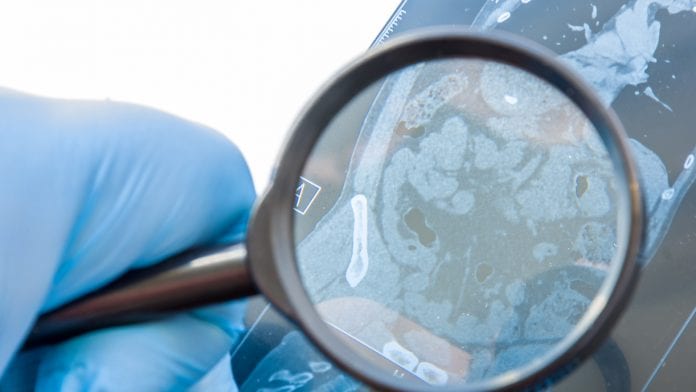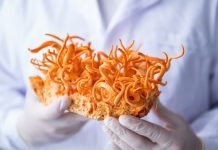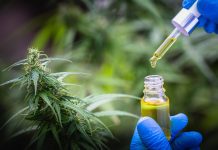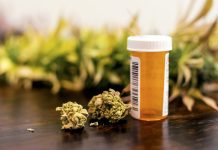
IcBD has developed a CBD formulation which could be the answer to inflammatory bowel disease.
In recent years, few topics have been as hot and yet remain as inconclusive as the therapeutic effects of cannabis and its derivatives on a range of conditions. In particular, cannabidiol (CBD) and its effects on many diseases have been the subject of far too many articles. But all we know for certain is that it is not always effective; nor is it always safe. One of the conditions where we believe CBD could be the answer is Inflammatory Bowel Disease (IBD).
Based on promising findings in our initial research efforts, we founded IcBD, with the belief that for millions of patients around the world with colon-related problems, it is time to find out what really does and doesn’t work.
IcBD is led by the senior team that founded Talent Biotechs (acquired by Kalytera Therapeutics), Stero, CannaLean, and CannaMore. David Bassa, CEO, a successful serial entrepreneur, twice recipient of the President of Israel’s Excellence Award; Dr Sari Prutchi Sagiv (yours truly), PhD, CSO with vast experience in biotech and cannabis companies and Director of Tech Transfer at MOR RESEARCH Ltd, the tech transfer arm of Clalit Health Services, the world’s second largest HMO, boasting more than five million patients, 9,000 physicians, and 14 hospitals. MOR manages the process of finding new indications and commercialising the ideas and inventions conceived at Clalit, benefiting researchers, industry partners, and the public at large. The team is completed by Dr Timna Naftali, PI and Senior Medical Advisor, a Specialist in Gastroenterology, Senior Physician at Meir Medical Center, as well as a pioneer and key opinion leader in the field of cannabis as treatment for IBD, who has conducted and published many preclinical and clinical studies in the field.
We have taken a novel, multi-pronged, topical route. Applied locally in combination with a number of other compounds, CBD could be the definitive answer to IBD issues ranging from serious discomfort, impairments to leading an active life; and in extreme cases, even death.
In our new CBD topical patent protected enema formulation, CBD acts synergistically with various additional compounds for several indications where reducing inflammation, restoring the colon epithelial barrier function, controlling diarrhoea and improving microbiome stability are crucial.
There is no lack of literature about CBD potentially treating colon dysfunctions, but there is very little methodical scientific research and conclusive proof, as we examine below.
Understanding IBD
Inflammatory bowel diseases include Crohn’s disease (CD) and ulcerative colitis (UC). Both are chronic, often disabling and occasionally life threatening. They require constant care and sometimes surgery.
Three interdependent elements determine IBD pathophysiology: intestinal microbiome; barrier function; and immune system. Dysfunction in any one of them (dysbiosis, leaky gut, and inflammation, respectively) can bring on or exacerbate IBD.
What is new in our proposition, in comparison to previous work in this area, is that we believe CBD alone is not as potent as other cannabinoids or as CBD could be in combination with other compounds, working in tandem to regulate and re-stabilise all three axes. We have therefore initiated preclinical and clinical trials to evaluate the safety and efficacy of a new, multi-directional approach, hoping to make significant inroads into helping these patients.
Our efforts are currently focused on ulcerative colitis, a condition that causes mucosal inflammation in the colon.
A close look at the IBD trio
The immunological reactions, epithelial mucus barrier and microbiome that keep the colon healthy work together, maintaining a delicate balance in the gastrointestinal tract. When one or more of these functions is disrupted and the body cannot regulate them on its own, disease sets in: the intestinal microbiome is altered for a long time or permanently (dysbiosis); the barrier function is damaged (leaky gut); and the immune system is activated (inflammation). The three are mutually dependent.
Many genetic and environmental factors determine the health of the mucosal barrier, epithelial cells and tight junctions which separate the microbiome from the immune system. When this barrier breaks down, gastrointestinal organisms translocate and trigger the immune system, resulting in inflammation. This in turn causes further damage to the mucosal barrier.
Most current IBD therapies target only one of these phenomena: inflammation. But many IBD patients do not respond to immuno-modulating therapies, which has led us to explore new approaches targeting the microbiome and the barrier function simultaneously.
The basics of UC
Ulcerative colitis, a chronic relapsing-remitting IBD of the colon, involves a superficial mucosal inflammation extending from the rectum to the more proximal colon, to varying degrees. Patients may exhibit symptoms such as bloody diarrhoea (with or without mucus), rectal urgency, frequent evacuation, and abdominal pain. Some patients may also have constipation. Many patients also experience serious involuntary weight loss or anaemia. Random attacks come and go with increasing frequency, some leading even to hospitalisation. Proper diagnosis requires endoscopy and biopsy. Although the debate on what causes UC is still raging, increasing evidence suggests it may be an autoimmune condition.
Incidence and prevalence of IBD are higher in developed countries, in colder climates and in urban regions. Internationally, UC incidence ranges from 0.1 to 16 cases per 100,000 persons per year. Prevalence rates are around 249 per 100,000 persons in North America and 505 per 100,000 persons in Europe, with no significant gender differences. Racial differences observed can be mostly attributed to environmental influences, food habits and lifestyle rather than genetics. Age-wise, UC peaks in the second and third decades of life; and peaks again between the ages of 50 and 80.
Microbiome superstar
The gut microbiome is a vast, microscopic ecosystem made up of trillions of microorganisms. These little creatures are essential to keeping us healthy: their multiple roles include helping us metabolise foods and drugs, develop our intestinal epithelium, and develop and modulate our immune system. They even protect us from infections. If we are lucky enough to have a healthy microbiota from an early age, many environmental factors will need to act together in order to create long term clinical issues. Surprisingly, besides IBD, irritable bowel syndrome, and enteric infections, many other seemingly unrelated conditions are associated with changes in the microbiome, including neuropsychiatric and atopic diseases, asthma, obesity and colorectal cancer.
In patients with UC, the mucus layers become thinner or disappear, while the goblet cells which should protect them are depleted. Some of the microbiota involved in IBD use mucus as an energy source, regulating its production, so that changes in mucus may be the cause and the result of dysbiosis. Microbes translocating beyond the mucosal surface can also be responsible for stimulating the immune system (endotoxemia).
The barrier function of the epithelium
The intestinal mucosal barrier separates the microbiota, food, and other contents inside the intestine from the immune system. The network of proteins called tight junctions connecting epithelial cells, show increased permeability in IBD, which can trigger further inflammation.
Inflammation
The immune system plays a critical role in the development of IBD and it is likely that invading microorganisms trigger inflammation by stimulating various components of the immune system, by releasing inflammatory cytokines and recruiting phagocytic cells, among others.
In order to treat IBD, both immune-based and – to a lesser extent and with varying results – microbiota-based therapies have been tried and used. Other therapies have used antibiotics, probiotics, or faecal microbiota transplantation, all yielding mixed results. Special diets and/or dietary supplements have shown positive results in some cases.
Barrier function-based therapies to restore the integrity of the mucosal barrier seem promising, and this is partially achieved also through immune-based and microbiome-based alternatives. Treatments with natural products such as turmeric are used by natural practitioners in treating IBD; and could possibly also influence tight junctions.
All these directions have been tried and are still being investigated, as we begin to develop an understanding of what influences the three factors and how they influence each other.
Where does cannabis fit in? The endocannabinoid system and the gut
The endocannabinoid system1 (ECS) is a network of receptors and enzymes related to pain, appetite, memory and mood. ECS is likely the communication link between the gut and the brain, interacting with the body’s central nervous system (CNS) and enteric nervous system (ENS), which extends from the oesophagus to the rectum. The ENS uses the same receptors, neurons, and neurotransmitters as the CNS.
The ECS modulates inflammation, regulates digestion, and regulates communication with the brain. Its receptors interact with cannabinoids, found in cannabis and other plants such as black pepper, cloves, hops, ginseng, black truffles, and dark chocolate. Our body makes its own cannabinoids (called endocannabinoids) that act on these receptors.
In IBD, the endocannabinoid system is compromised, further reinforcing the case for cannabis and CBD-based therapies. Cannabis use is already high among IBD patients, as numerous surveys have shown.
Studies with cannabis and CBD to date
We have looked at various large retrospective observational studies in cannabis users done by our PI Dr Timna Naftali et al, (30 CD patients, 2011), Storr, M et al (313 IBD patients, 2014) and Mbachi, C et al (615 CD patients, 2019). Overall, cannabis users showed significant improvements, which translated into less need for medication and other therapies; fewer and milder subjective symptoms; and lower likelihood of active fistulising disease, intra-abdominal abscess, blood product transfusion, colectomy, and parenteral nutrition requirements.
In one of the studies, despite improvement in subjective symptoms in CD patients who used cannabis for longer than six months, requirement for surgery increased; meaning either that cannabis use increases risk for surgery or just that cannabis-based medicine is more frequently prescribed in patients with more severe, perhaps fibrostenotic disease.
Due to its anti-inflammatory action and lack of central effect, CBD is an attractive treatment option; and has been explored in several prospective studies.
In one of them (62 patients, Irving, PM et al, 2018), testing oral use of CBD, effectiveness was not proven conclusively because 40% of the patients were intolerant to the CBD formulation. Those who did complete the therapy showed significant clinical and endoscopic improvement. In a second study (19 CD patients, Naftali, T et al) with low dose oral CBD, results were negative either due to low CBD efficacy or the very low dose. In a third randomised study (30 UC patients, Kafil, TS 2018) with CBD rich oil given orally (15% CBD and 4% THC), the Crohn’s disease activity index (CDAI) improvement was significantly higher compared to the placebo group.
Though these and other data support cannabis use for subjective symptoms in IBD, observational studies should be viewed with caution. Even if patients show subjective improvement in their symptoms, these findings are not necessarily associated with mitigating disease progression or decreasing severity.
Further in vitro evidence of cannabis action on inflammation, permeability and the microbiome
Much has been published about the positive effects of CBD in preventing and restoring damage of the intestinal barrier, inflammation and the microbiome. Some examples include:
There is abundant evidence that CBD reduces inflammation through several pathways in the body, representing an effective potential treatment for several conditions characterised by inflammation; including experimental colitis, collagen-induced arthritis, b-amyloid-induced neuroinflammation, neutrophil chemotaxis, hepatic ischemia-reperfusion (I/R) injury, autoimmune encephalomyelitis, acute lung injury (ALI), etc.
CBD also appears to affect a class of molecules important to the inflammation process called cytokines, by reducing their pro-inflammatory effects, thereby reducing inflammation. In addition, CBD can reduce inflammation by inhibiting an eicosanoid enzyme called COX2, in a similar process to non-steroidal anti-inflammatory drugs (NSAIDs) like Advil and aspirin.
In a Caco-2 culture model, where epithelial permeability had increased due to inflammation, CBD and palmitoylethanolamide (PEA) prevented these changes when used prophylactically, and restored membrane resistance when given therapeutically. Others have also observed a protective effect of PEA and CBD on the gut barrier during inflammation. (Gubatan J, 2016; Izzo AA, 1999; Uece B, 2007; Sibaev A, 2009)
Another study demonstrated that Cannabidiol restores intestinal barrier dysfunction and inhibits the apoptotic process induced by Clostridium difficile toxin A in Caco-2 cells. (Stefano Gigli et al, 2017)
The gut microbiome modulates the intestinal endocannabinoid tone, preventing leaky gut and indirectly, affecting weight management. Some evidence2 shows that THC stimulates production of beneficial bacteria and suppresses disease-causing bacteria like clostridia.
Studies with animals have shown that THC alters microbiome balance in obese mice significantly and is known to prevent weight gain in animals on a high-fat diet. This phenomenon is linked to the microbiome. Besides weight gain, its effect is evident also in health conditions affecting the nervous system, where a combination of THC and CBD in a mouse model of neuroinflammation resulted in reduced disease signs. A well fed and functioning microbiome increases endocannabinoid tone and contributes to overall health3.
On the other hand, there are studies showing potential damage by CBD and cannabidiol-rich cannabis extract (CRCE). An in vivo study about CBD and extracts in microbiomes published this year showed that CBD/CRCE induces complex responses in the gut microbiome. For example, it increases the relative abundance of A. muciniphila, a bacterial species generally considered as a beneficial probiotic, but this seemingly comes at the expense of other bacterial species. When paralleled by numerous pro-inflammatory responses, this raises concerns about the potential long term effects of CBD ingestion (Alhamoruni A et al, 2010).
Our novel CBD-based formulation for treatment of colon diseases and IBD
We consider it important to treat IBD and many related indications topically for local effectiveness and overcoming the ‘first pass effect’. Our new CBD-based treatment acts directly inside the lower large bowel. This unique formulation of CBD with anti-inflammatory action plus other supplementary active substances acting synergistically can restore the permeability of the epithelium and the health of the microbiome too.
Several in vitro studies we have completed at IcBD have shown our proprietary combined approach results in a dramatically more significant improvement. Based on these promising preclinical and clinical preliminary results, we have received approval to start trials at hospitals in Israel.
In our Phase 2a, randomised, double blind, multi-centre study, we will evaluate the safety, tolerability and efficacy of our enema formulation in comparison with mesalazine enema as a treatment for active ulcerative colitis. We are planning to recruit 34 patients, who will be randomised into the two groups and take the medication for a period of 12 weeks. We will evaluate disease scores, clinical and endoscopic remission, inflammatory parameters and microbiome related parameters.
References
1 https://www.thorne.com/take-5-daily/article/how-the-endocannabinoid-system-connects-your-gut-and-your-brain
2 https://www.kgkscience.com/cbd-and-the-microbiome/
3 https://www.ncbi.nlm.nih.gov/pmc/articles/PMC4669115/
Dr Sari Prutchi Sagiv PhD
Chief Science Officer
IcBD
https://cannabis-innovationcenter.com/
This article is from issue 13 of Health Europa. Click here to get your free subscription today.



















Dear, sir/madame, please coul you give mě an info about co- administration PEA and CBD. Because in a mice model with multiple sclerosis was an antagonismus by co-administration PEA and CBD. But I have read that f.e by pain therapy you should add to PEA CBD. When the effect PEA is not enough. Could you help me. Thank you Jana Pecivova